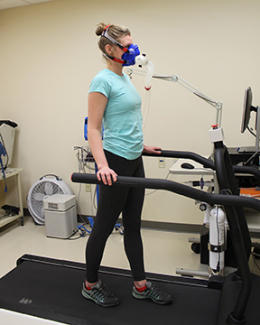
Everything we have learned about memory, memory treatments and memory disorders is known because someone volunteered for a research study. Thanks to study participants, researchers are making great strides in the early diagnosis of memory disorders and identifying potential new interventions to help treat, delay the onset and possibly prevent Alzheimer’s disease.
The Wisconsin Alzheimer's Disease Research Center is actively recruiting study participants from all walks of life.
Please visit our Open Studies page to learn about studies currently recruiting research participants. Or fill out the Research Recruitment Registry enrollment form.
Learn more about participating in a research study by reading the information below.
Frequently Asked Questions about Study Participation
- Will I receive a memory diagnosis?
If our testing determines you have a memory disorder (i.e., mild cognitive impairment or dementia), a clinician from the research study team will contact you and provide you with a research memory diagnosis. If you received a previous research memory diagnosis and our study team determines a change with the diagnosis, one of our clinicians will contact you.
We will not share information about a research memory diagnosis with your primary care provider. If you receive a research memory diagnosis, you can request a copy of your cognitive test results from the study team.
- What happens if there are unexpected findings?
If your blood or spinal fluid results are medically important and treatment is available, a clinician from the research study team will contact you to discuss the issue. About 4% of MRI scans conducted through the study reveal abnormalities; if we identify an issue with your MRI, a radiologist from our study team will contact you. The results from these procedures, as well as any other reports from the research study, will neither be shared with your primary care provider nor added to your medical record.
- Will I receive test results?
You will receive a copy of your blood lab results. If you have concerns about any blood lab results, please contact your primary care provider.
- Should I share my research information with my medical provider?
We will share research test results and other information only with you. You may choose to share the information with your primary care provider, and you may choose to have our radiologist contact your primary care provider in the event of an abnormal MRI. Please note, if you choose to share this information with your medical provider, the information will likely be added to your medical records.
- Where can I go for memory care?
As a research institution, we do not provide a formal clinical diagnosis of Alzheimer’s disease and/or other memory disorders. If you would like to learn more about seeing a specialist and undergoing a memory assessment, please contact your physician or visit our How to Get a Diagnosis webpage.
Observational and Interventional Studies
There are two main types of Alzheimer's disease research studies — observational and interventional. All research studies are helpful in advancing various aspects of medicine. Most studies look at ways to prevent, detect or treat disease.

What is an observational study?
In an observational study, the behavior of a participant is observed but researchers do not influence or change it. No attempt is made by the researcher to affect the outcome of the study. In other words, no treatment is given. Instead, researchers observe the health outcomes that come from the participant’s normal, unchanged lifestyle.
A benefit of this type of study is that it allows larger populations to be studied over a long period of time if needed. The Wisconsin ADRC Clinical Core is an example of an observational study.

What is an interventional study?
In an interventional study, researchers influence or change the behavior of a participant through treatments or lifestyle interventions. This study tests (or tries out) an intervention — a potential drug, medical device, activity or procedure — in people. An interventional study is also commonly referred to as a clinical trial.
The goal of an interventional study is to see how the specific intervention (for example, diet change) affects the issue being studied (for example, weight gain).
Medical Care Versus Medical Research
Medical research is an important part of improving medical care and finding better treatments and interventions for certain diseases and conditions. It's also a way to study trends, identify the cause of an illness or evaluate ways in which genetics may be related to an illness.
Many people ask us about the differences between medical care and research visits. Before we explain the differences, we want to share the following list of similarities:
- The same doctors and staff can work on both medical care and research teams
- Doctor appointments and research study visits can take place in similar settings such as clinics and hospitals
- Treatments, procedures and tools may be the same or similar in both care and research settings
- High standards of safety and protection are followed for both patients and research participants
Below are some differences between medical research and medical care that you may want to consider when deciding to join a research study.

Medical Care
- Going to the doctor for your personal health.
- Doctor may explain test results and determine a care plan. You may receive prescriptions, referrals for further care or changes to your current medications.
- All results and findings go into your medical record.
- Benefits the individual.
- Patient and/or health insurance pays for visit.
Medical Research
- Going to a research visit. Scientists will study the information you provide to us.
- Not all test results are shared with participants. Recommendations may be given, but no prescriptions are made.
- Lab results go into your medical record as a research visit, but no other data is shared.
- Benefits science and future generations.
- Study visits are paid for by grant funding and/or private donations.





